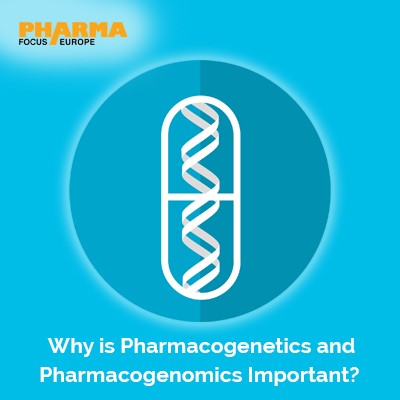views
Introduction
In a world of increasingly personalized medicine, the fields of pharmacogenetics and pharmacogenomics are gaining importance. These disciplines explore the relationship between an individual's genetic makeup and their response to drugs. By understanding how genetic variations influence drug metabolism and efficacy, healthcare providers can tailor medication choices, dosages, and treatment plans to optimize patient outcomes.
Pharmacogenetics looks at specific genes that affect drug response, while pharmacogenomics analyzes a person's entire genome to uncover potential genetic variations that might influence drug response. This knowledge allows healthcare professionals to identify patients who are more likely to experience adverse drug reactions or who may require adjusted dosages for maximum therapeutic benefit.
The value of pharmacogenetics and pharmacogenomics lies in their potential to enhance drug safety, efficacy, and cost-effectiveness by reducing trial and error in prescribing medication. By incorporating these approaches into clinical practice, healthcare providers can offer more precise and personalized treatment, minimizing the risk of adverse effects and maximizing therapeutic outcomes. Ultimately, the integration of pharmacogenetics and pharmacogenomics into routine healthcare has the potential to revolutionize how medications are prescribed and improve patient care.
Understanding genetic variations and drug responses
Genetic variations play a crucial role in how individuals respond to drugs. Every person has a unique genetic makeup that influences the way their body metabolizes and interacts with medications. Pharmacogenetics focuses on studying specific genes that are known to impact drug response. These genes can influence factors such as drug absorption, distribution, metabolism, and excretion.
For example, the CYP2D6 gene is responsible for metabolizing many commonly prescribed medications, including antidepressants and beta-blockers. Variations in this gene can lead to either rapid or slow metabolization of drugs, affecting their effectiveness and potentially causing adverse reactions. By identifying these genetic variations through pharmacogenetic testing, healthcare providers can tailor medication choices and dosages to each individual, maximizing therapeutic benefits and minimizing potential risks.
Pharmacogenomics takes a broader approach by analyzing an individual's entire genome to uncover potential genetic variations that might influence drug response. This comprehensive analysis allows for a more personalized approach to drug therapy, considering multiple genes and their interactions. By understanding the complex interplay between genetic variations and drug response, healthcare providers can make informed decisions about medication selection and dosing strategies, leading to improved patient outcomes.
The impact of pharmacogenetics and pharmacogenomics on personalized medicine
Personalized medicine is a rapidly evolving field that aims to provide tailored healthcare based on an individual's unique characteristics, including their genetic makeup. Pharmacogenetics and pharmacogenomics are at the forefront of this revolution, offering insights into how genetic variations can influence drug response and guiding treatment decisions.
By incorporating pharmacogenetic and pharmacogenomic information into clinical practice, healthcare providers can move away from a one-size-fits-all approach to medication prescribing. Instead, they can offer more precise and individualized treatment plans, optimizing therapeutic outcomes while minimizing the risk of adverse reactions. This shift towards personalized medicine has the potential to transform healthcare, improving patient satisfaction, reducing healthcare costs, and ultimately saving lives.
Benefits of incorporating pharmacogenetics and pharmacogenomics in healthcare
The integration of pharmacogenetics and pharmacogenomics into routine healthcare brings numerous benefits for both patients and healthcare providers. One major advantage is the enhancement of drug safety. Adverse drug reactions are a significant concern, often resulting in hospitalizations, increased healthcare costs, and even fatalities. By identifying genetic variations that predispose individuals to certain adverse reactions, healthcare providers can proactively avoid prescribing medications that may cause harm. This personalized approach to drug therapy reduces the risk of adverse events and improves patient safety.
Another benefit is the optimization of drug efficacy. Every individual responds differently to medications, with some patients experiencing little to no effect while others may have a heightened response. Pharmacogenetics and pharmacogenomics help healthcare providers identify patients who are more likely to respond positively to certain medications. By tailoring drug choices and dosages based on an individual's genetic makeup, healthcare providers can improve treatment outcomes, ensuring patients receive the most effective therapies.
Discover more: https://www.pharmafocuseurope.com/articles/why-is-pharmacogenetics-and-pharmacogenomics-important























Comments
0 comment